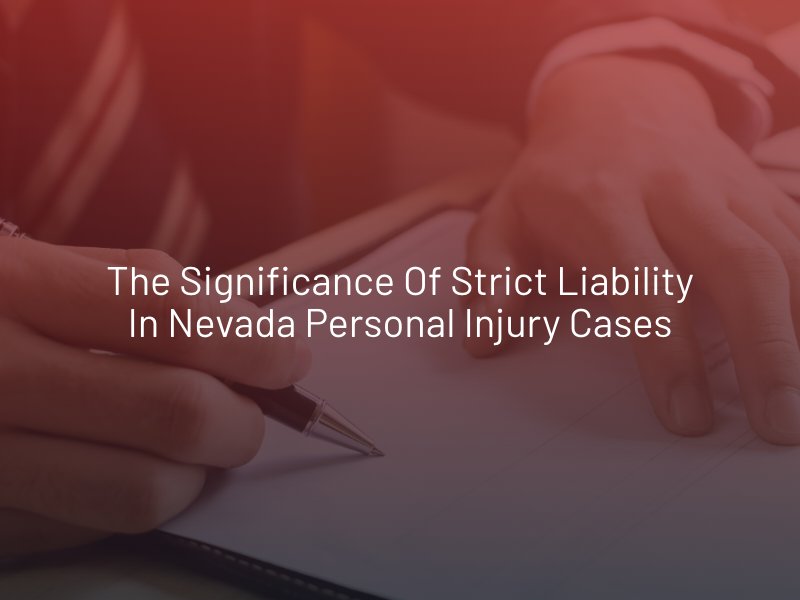The Significance of Strict Liability in Nevada Personal Injury Cases
Strict liability is a legal principle that holds a person or entity responsible for damages or harm without the need to prove negligence or fault.
Unlike other areas of tort law, where the injured party must demonstrate that the defendant (at-fault party) was negligent or intentional in causing the injury, strict liability applies even if the defendant acted with reasonable care.

Key Aspects of Strict Liability
Here is a breakdown of the critical aspects of strict liability:
No Need to Prove Fault
The plaintiff does not need to prove that the defendant was careless or intended to cause harm. The mere fact that the injury occurred and the defendant was responsible is enough to establish liability.
Policy Reasons
The rationale behind strict liability is often tied to public policy. By holding entities liable regardless of fault, it encourages higher safety standards and places the burden of loss on those who have created the risk and can better absorb the costs.
Inherently Dangerous Activities
Individuals or companies engaged in inherently dangerous activities may be held strictly liable for any resulting harm. This could include activities like blasting, handling toxic materials, or keeping wild animals.
Product Liability
Strict liability often applies to product manufacturers or sellers. If a product is defective and causes injury, the company may be held liable, whether or not they were negligent in the manufacturing or design process.
Proving Strict Liability in Nevada
In a strict liability case in Nevada, a plaintiff typically must prove the following elements:
- Existence of Injury or Damage: The plaintiff must clearly demonstrate that they suffered an injury or damage. This can include physical harm, property damage, or financial loss.
- Defendant’s Responsibility: The plaintiff must establish that the defendant is the responsible party. In a product liability case, for instance, this might mean providing evidence of a defect and identifying the manufacturer, distributor, or retailer of the defective product.
- Causation: There must be a direct link between the defendant’s action (or the product’s defect) and the injury suffered. In other words, the injury must have been caused by the specific act or product for which the defendant is being held strictly liable.
- Foreseeable Use: In strict liability cases, the defendant may argue that the plaintiff misused the product or understood the assumption of risk. As a result, the plaintiff must prove they used the product as intended or in a reasonably foreseeable manner.
The main difference between strict liability and other forms of liability is the absence of the need to prove negligence or fault on the part of the defendant. The focus is primarily on the fact of the injury, the defendant’s responsibility for it, and the direct causation of the harm.
How an Attorney Can Help
A Las Vegas personal injury attorney can be an invaluable asset in a strict liability case. They will evaluate the details of the incident, collect evidence to prove the elements of strict liability, and fight for your rights in negotiations or court if necessary.